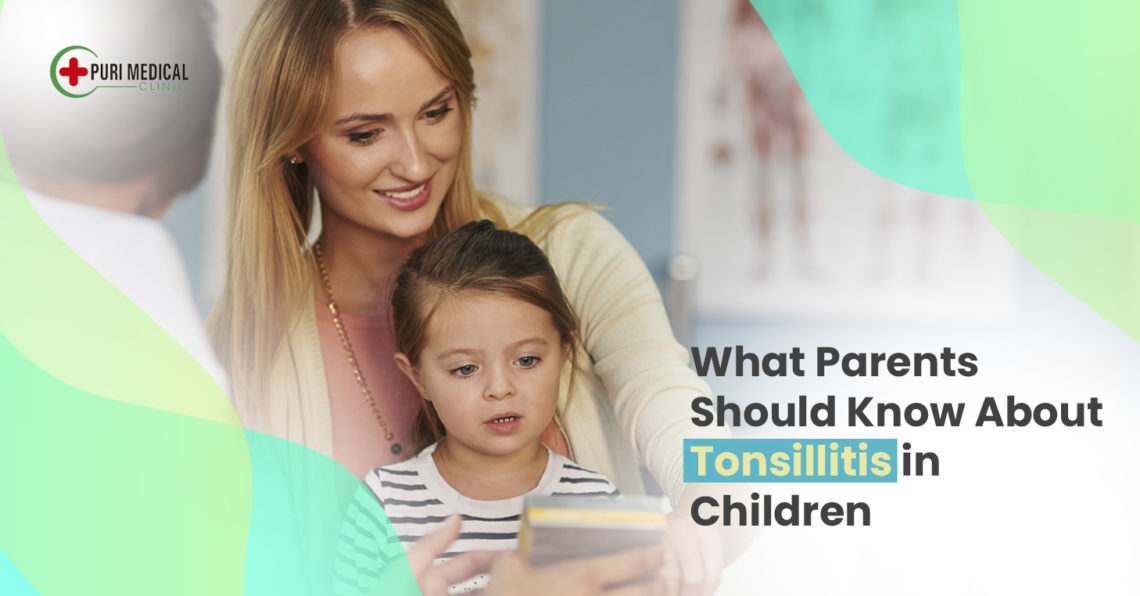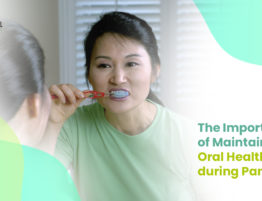
Your children have experienced a sore feeling in their throat? This might be one of the tonsilitis symptoms. Tonsilitis is an infection of the tonsils, two masses of tissue at the back of your throat. Along with the adenoids, tonsils are part of the lymphatic system. The lymphatic system clears away infection and keeps body fluids in balance. Tonsils and adenoids work by trapping the germs coming through the mouth and nose. A viral infection usually causes tonsillitis. A bacterial infection such as strep throat can also cause tonsillitis. Tonsillitis is most common in children over age two. It is more common in kids ages 5-15. Tonsillitis caused by a virus is more common in younger children. If you have children between these ages, you better have some insight into this infection diseases. This article will provide you all the basic information that you should know as a parent to handle and treat the symptom in your children.
Tonsillitis Types
Generally, there are three types of tonsillitis:
1. Acute tonsillitis. These symptoms usually last 3 or 4 days but can last up to 2 weeks.
2. Recurrent tonsillitis. This is when you get tonsillitis several times a year.
3. Chronic tonsillitis. This is when you have a long-term tonsil infection.
Tonsillitis Symptoms
The main symptoms of tonsillitis are inflamed and swollen tonsils, sometimes severe enough to make it hard to breathe through your mouth. Other symptoms include:
1. Throat pain or tenderness
2. Fever
3. Red tonsils
4. A white or yellow coating on your tonsils
5. Painful blisters or ulcers on your throat
6. Headache
7. Loss of appetite
8. Ear pain
9. Trouble swallowing
10. Swollen glands in your neck or jaw
11. Fever and chills
12. Bad breathe
13. A scratchy or muffled voice
14. Stiff neck
Specific Tonsillitis Symptoms in Children
In children, symptoms may also include:
1. Upset stomach
2. Vomiting
3. Stomach pain
4. Drooling
5. Not wanting to eat or swallow
How Is Tonsillitis Diagnosed?
Health care providers will ask about symptoms and do an exam. They will check the inside of the mouth, the back of the throat, and the neck. They will use a soft cotton swab to collect a sample from the throat’s tonsils gently and back. This can be:
– Tested quickly with a rapid strep test that answers within minutes
– Sent to a lab for a throat culture, which takes a few days
If the rapid strep test doesn’t show strep signs, the health care provider will depend on the culture for a final diagnosis. It’s important to call your health care provider if your child has tonsillitis symptoms.
How Should Tonsillitis be Treated?
The treatment depends on whether the tonsillitis is caused by:
– A virus, in which case the body will fight the infection on its own
– Bacteria, in which case the doctor will prescribe an antibiotic. It will help your child take the antibiotic exactly as directed. This helps symptoms clear up quickly and prevents spreading the infection to others.
It’s important to finish the entire prescription, even if your child feels better in a few days or the infection could come back. This also helps prevent a more serious health problem that streptococcus can cause, called rheumatic fever, which can damage the heart.
Rarely, a health care provider might recommend a tonsillectomy or surgery to remove the tonsils if a child’s tonsils get infected a lot or are so big, it makes him feel hard to breathe at night. Tonsillectomy used to be very commonly done. Now, experts use guidelines to decide if tonsil removal is the best treatment. In general, tonsillectomy may be considered if a child has seven sore throat episodes in 1 year, five episodes 2 years in a row, or three episodes 3 years.
How Can You Help Your Child Feel Better?
When your child has tonsillitis symptoms, make sure that your child drinks lots of fluids and gets plenty of rest. If swallowing hurts, serve liquids and soft foods. Some kids prefer warm drinks, like soup or sweetened tea. Other kids like the feel of cold or frozen foods on their throat, such as milkshakes, smoothies, ice pops, or ice cream. Older kids can suck on hard candies or throat lozenges. You can give a pain reliever, such as acetaminophen or ibuprofen, for throat pain. Don’t give aspirin or other products that contain aspirin, though, because these can put kids at risk for Reye syndrome.
What You Can Do to Prevent Tonsillitis in Your Child
Tonsillitis is contagious. Sneezing and coughing can pass the germ causing the illness from one person to the other. Therefore, try to keep kids away from anyone who already has tonsillitis or a sore throat, and make sure everyone in your family always wash their hands well and as often as possible. If someone in the family has tonsillitis, keep their drinking glasses and eating utensils separate and wash them in hot, soapy water. They should not share food, drinks, napkins, or towels with other family members. Please give them a new toothbrush after they are treated and no longer contagious.
When You Should Visit The Doctor
If the condition of your child is getting worse, it is a must to visit the doctor. If you live in Bali and look for a clinic with international quality and facility, you can search clinic in Canggu through your phone. You will find Puri Medical Clinic. We have complete facilities to do the test to find out whether your child has tonsillitis or not. Our professional doctor will help you with the best solution to cure and release tonsillitis in your child.








